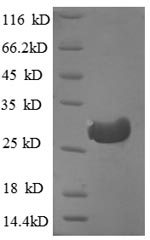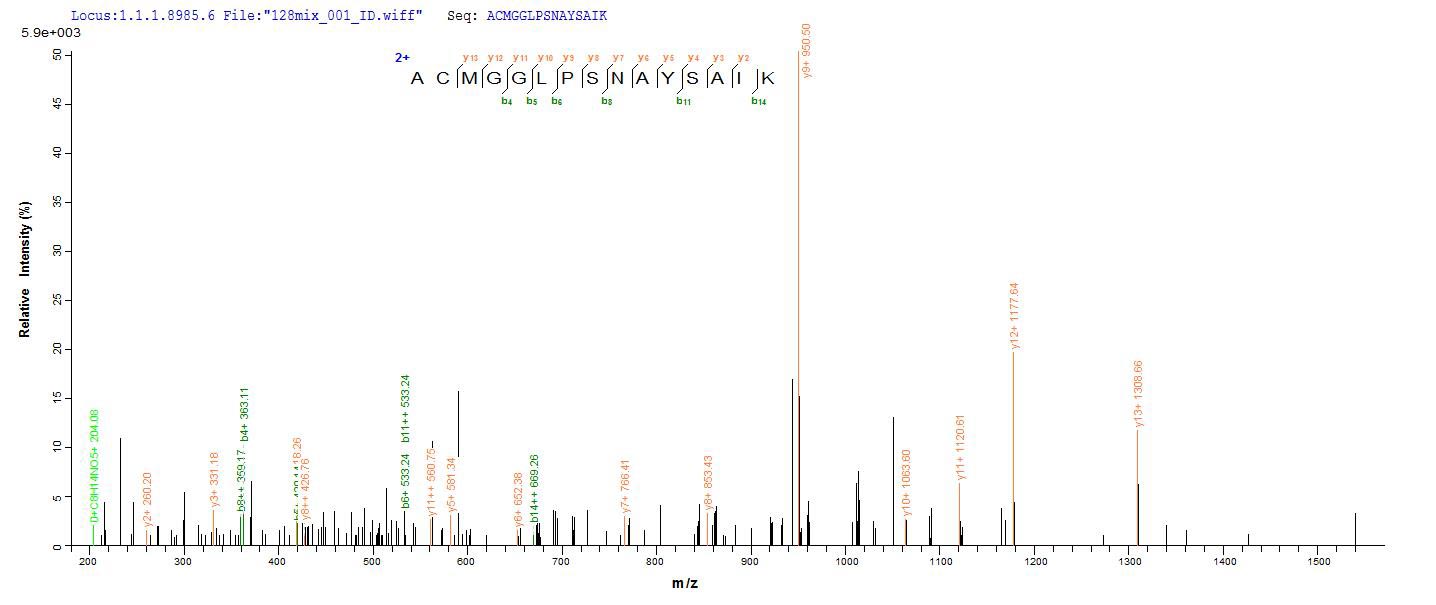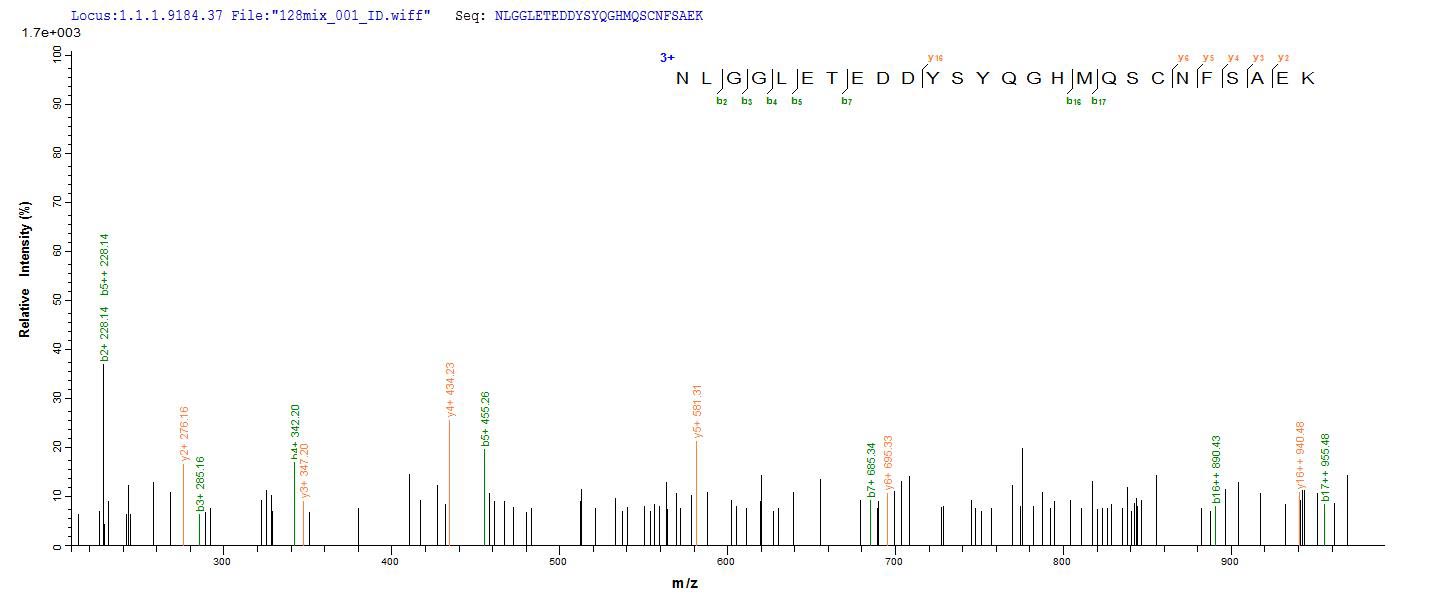Amino acids 273-484 form the expressed segment for recombinant Human CTSF. The calculated molecular weight for this CTSF protein is 27.4 kDa. This CTSF protein is produced using e.coli expression system. The N-terminal 6xHis tag was fused into the coding gene segment of CTSF, making it easier to detect and purify the CTSF recombinant protein in the later stages of expression and purification.
The human cathepsin F protein (CTSF), belonging to the papain family of cysteine proteases, is a lysosomal cysteine protease involved in the degradation of proteins within lysosomes. CTSF is primarily localized in lysosomes, where it participates in the processing and turnover of intracellular proteins. It exhibits endopeptidase activity, cleaving peptide bonds within proteins and peptides. Research on CTSF encompasses its role in cellular proteolysis, antigen presentation, and immune responses. Understanding the function of CTSF contributes to insights into lysosomal biology, protein degradation pathways, and its potential implications in diseases associated with lysosomal dysfunction.






